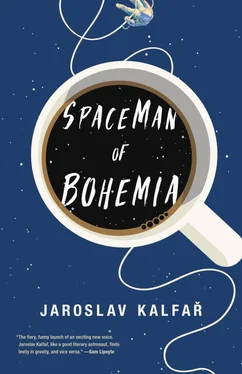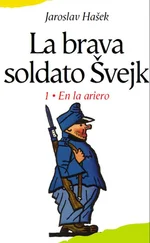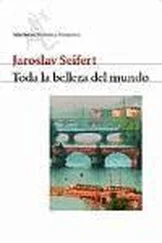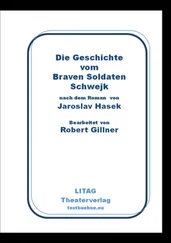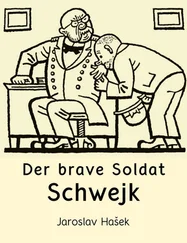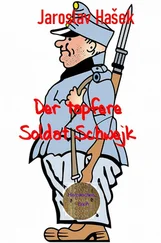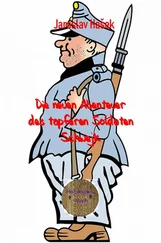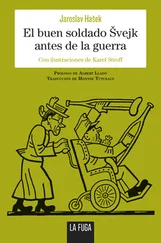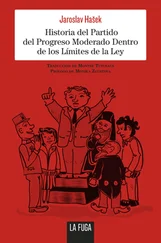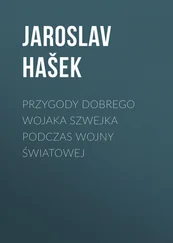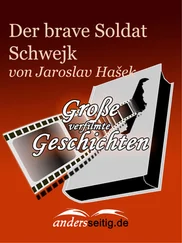The purpose of my newfound mission thrilled me. I couldn’t go back to Lenka, I didn’t belong in her world anymore. With the universe ever expanding, we could never circle back around to each other. But Shoe Man…
Radislav Zajíc. He defied these laws of physics. He had returned, somehow. He knew me. He knew Tůma. I’d always figured he knew of me, if only from the newspapers. I had counted on him watching my triumph. But his friendship with Tůma opened its own separate cosmos, one that did not begin with a random incident of energy exploding into being, but was carefully designed. As I fell asleep in the bakery, with mice bumping into my shoes, I was certain that everything that had happened was somehow his doing.
In the morning, I woke early. I rode to Vyšehrad, a fort overlooking the River Vltava. There the ghosts of the old kings kept guard over alleys and fountains, towers and shops, the souls of children dragging themselves to school and tired adults jumping onto the tram. Perhaps the ghosts watched over me too. More than a thousand years ago, Princess Libuše had stood on the hill of Vyšehrad and looked across the River Vltava, where she declared, “I see a great city whose glory will touch the stars.” She instructed her men to travel to the settlement and find a peasant constructing the threshold of a house. Atop this threshold, Libuše claimed, was where the Prague Castle should be built. “And because even the great noblemen must bow low before a threshold, you shall give it the name Praha.” Threshold. Práh . The founding of Prague depended on such staggering duality. Across the river, Libuše had seen a vision of a thousand towers extending up to the skies, towers so high they could be seen from Istanbul, from Britannia, perhaps from God’s own divine throne. And yet the name of this city of glory was based on the humblest part of any structure: a threshold, a line marking entry and exit, a symbol no person considers twice. Was this duality—the humble name and the contrasting vision of grandeur borne out when Přemysl the plowman, a simple villager, married Princess Libuše and became the first ruler of the Bohemian lands—the reason Prague had survived civil wars, the Austro-Hungarian cultural purging, and occupations by fascists and Bolsheviks? Perhaps the world is enslaved to its own dualities, a humble beginning with an impossible dream attached. Libuše’s vision across the river was the beginning. I am the end. With me, Prague had touched the skies at last, and fulfilled the prophecy that Libuše bestowed upon its cradle. Never mind that the Holy Roman Emperor once resided in the Prague Castle, or that the first council of Bohemia had congregated within its walls. It was with me that the history of the city had finally come full circle.
I rode to New Town and parked my motorcycle a few blocks from Charles Square, which had been a home to me during my first university years. It had changed quite a bit. No longer did students loiter around with their heavy bags. They had been replaced by headlong tourists consulting their maps and agendas. I roamed the streets around the square and took part in the city that had given me life. I handed money to a group of three actors performing Shakespeare on top of a parked van. I ate hot dogs and paid bathroom attendants to hand me carefully folded toilet paper. Church bells tolled in the distance, and a small boy dropped ice cream at my feet, his parents lamenting in Italian. I walked into an alleyway that turned into a pop-up bookshop, with young people rummaging through boxes of literature and paintings. The street ended in a homeless commune of tents and piles of clothes, the outpost secured by a vigilant street dog. I fed the dog the remnant of my frankfurter wrapped in a napkin—in Prague, the likelihood of running into a dog, feral or domesticated, was high, and I liked to be prepared—and the guardian of the commune’s treasures licked my fingers.
At eleven o’clock, I returned to the square, its grass dark and littered with wandering birds. The square was surrounded by walls of trees that sheltered its inhabitants from the city life around it. There, in the middle of the plaza, stood the spaceman’s statue, dead eyes of carved stone, a nose much smaller than mine, helmet in his right hand, left hand over his heart, a gesture to the people. The base, towering above me as if it held the weight of an emperor, was decorated with a sign of pure gold, whose letters had been carved by the same stonemason who had curated the main stairwell of the National Museum. Part of the etched name was concealed by growing vines.
Beyond the statue I encountered a group of middle school children on a field trip. They frolicked under the supervision of a frowning teacher, and their youthful twittering carried an eerie song to my ears. Impossible, I thought, but no, I had heard them correctly. They were singing of the dead spaceman, of being just like him someday.
No other sound would ever force the tune out of my head. It would return without invitation for a lifetime to come, like the flu or the scent of lovers. I stood there in the flesh and observed the children, my attention unreturned, while the stoic, bloodless version of me placed a few meters away earned the praise of their song.
I sat on a bench across from the statue. Noon was a few minutes away. My nausea, the tightness in my knuckles, the violence of the moment, the fear forced me to lean forward. The man who’d banished my family was on his way over. In this earthly life once again resumed, he was now all that mattered.
One minute late. Was he coming?
A figure emerged between the trees. He made his way toward the children and put his hand on the teacher’s shoulder. The two spoke and the newcomer pointed toward me. The teacher nodded.
Radislav Zajíc walked briskly toward me. He stopped some fifteen meters away, his arms awkwardly limp at his sides, like a boy told not to pick his nose. He seemed shorter than I remembered, but it was his face, marked by those same pox scars and gray scruff. His suit, the body armor, was smooth and perfect at every crevice, as if it were another layer of fresh skin.
“I asked that teacher if he saw you sitting here,” Zajíc said, “and he said yes.”
I rose and walked up to Shoe Man. I was taller than he was. “You see me,” I said.
“I do. Jakub. You are here. And you look like your father.”
He knew me. He had recognized me instantly. This man was the last living remnant of my early history. A proof that those childhood days weren’t a mirage. Against my will, the anger and nausea dissipated. Shoe Man soothed me.
Probability theory examines mathematical abstractions of nondeterministic events. It also studies measured quantities that may either be single occurrences or evolve over time in an apparently random fashion. If a sequence of random events is repeated many times, patterns can be detected and studied, thus creating the illusion that human observers can truly know and understand chaos. But what if our existence itself is a field of study in probability conducted by the universe? Each of us a character, a mathematical abstraction set up with attributes copied from previous subjects, with a slight variation (switch Oedipal complex for Electra complex, exchange crippling social anxiety for narcissism), sent out with similar instincts—the fear of death, the fear of loneliness, the fear of failure. Our outcomes—poverty, starvation, disease, suicide, peaceful death on a bed plagued by shame and regret—being collected by a researcher above, a cosmic tally gathering the likelihood of happiness, likelihood of wholeness, likelihood of self-destruction. Likelihood of luck. Can a subject born impoverished and diseased finish in the upper luck bracket at the end of her life? Can a subject born into privilege and health crash and die in utter misery? We’ve seen it all. We’ve seen it all and yet where are these patterns, when will the universe publish its findings in a respected peer-reviewed journal? What is the ratio of probability for one cosmic event to occur over all others? How unlikely. Yet here we are.
Читать дальше
